The book "Libraries and Electronic Archiving"
Author: Educational Consultant Muhammad Aqouni
In light of the rapid digital transformations the world is witnessing, "Libraries and Electronic Archiving" emerges as one of the most vital tools for preserving and disseminating information effectively and securely. This book, by author Aqouni Muhammad, presents a comprehensive analytical perspective that combines theory and practice on digital libraries and electronic archiving systems, highlighting their pivotal role in supporting education, scientific research, and preserving the intellectual heritage for future generations.
The author was keen to highlight the importance of combining libraries and electronic archiving as an integrated system that enhances the efficiency of access to information and supports the sustainability of knowledge.
The concept of libraries and archiving
The term "electronic libraries and archiving" refers to systems that rely on technology to store, organize, and retrieve information. Electronic libraries contain diverse knowledge resources such as books, journals, databases, and multimedia, and provide users with access to them via the Internet.
Electronic archiving is the process of converting paper or traditional documents into digital formats that are easy to store, manage, and protect from damage or loss. The importance of libraries and archiving stems from the fact that they facilitate access to information, reduce costs, and improve the quality of educational and research services, making them a necessity in the digital age.
The importance of electronic libraries
Digital libraries play a prominent role in improving the information infrastructure. They represent an evolution in the way knowledge is stored and provided. Their most important advantages include the ability to access millions of sources from anywhere in the world and the provision of advanced search services that allow users to easily locate precise information.
Libraries and archives contribute to enhancing self-education opportunities and facilitating the scientific research process by accelerating access to references and reducing the time required to locate the required information. Furthermore, electronic libraries enable content sharing between individuals and institutions, which enhances academic and knowledge collaboration on a broad scale.
Advantages of electronic archiving in libraries and electronic archiving
The importance of electronic archiving lies in its ability to protect documents from loss or damage, especially in light of natural or security challenges that may threaten traditional paper content. Its advantages also include reducing required storage space and improving work productivity by automating search processes, providing accurate search tools, and improving the efficiency of information retrieval.
In the context of libraries and electronic archiving, these systems are usually managed through advanced systems such as:ECM (Electronic Content Management) which allows for managing access permissions, backups, and ensuring the security of stored information.
Types of electronic libraries within the electronic libraries and archiving system
This system is divided into several types according to the content, such as:
- Public libraries that offer books and magazines in all disciplines
- Libraries specializing in fields such as medicine or law
- Academic libraries that focus on research and theses
- Government libraries that provide official data
- Personal libraries created by individuals
On the other hand, there is a division according to the access mechanism:
- free,
- paid,
- Hybrid.
This diversity of library types underscores the importance of libraries and electronic archiving in meeting the needs of diverse user segments.
Services and technologies in libraries and electronic archiving
Library and archiving services include a range of tools that facilitate the use of digital content, such as:
- search engines,
- Reading, downloading and printing capabilities,
- Share content,
- Enter comments on documents,
- User management systems,
- and content usage analytics.
Archiving techniques include scanning,OCR (Optical Character Recognition), cloud storage, databases, and document indexing ensure efficient and reliable content management within the library and electronic archiving environment.
Challenges facing libraries and electronic archiving
Despite the numerous benefits of libraries and electronic archiving, they face several challenges, most notably:
- High costs of establishing and maintaining digital infrastructure
- Copyright and Intellectual Property Issues
- The need for unified standards to ensure compatibility between different systems
- Security threats such as cyber attacks
- Data preservation challenges as file formats evolve
- And ensuring permanent access to stored information
All these challenges require careful planning and sophisticated management strategies to ensure the continuity of the library and electronic archiving system.
The importance of libraries and archives in education and research
Libraries and archives play a pivotal role in supporting the educational process, providing students and researchers with access to vast knowledge resources without the need to be physically present at a specific location.
These systems provide access to research, dissertations, and academic journals, supporting open and distance education. They also encourage researchers to advance their studies thanks to immediate and easy access to documented academic content, making libraries and archives one of the main pillars of the digital education renaissance.
Security and quality standards in libraries and archiving
The book stresses the need to adhere to international standards such as:ISO 14641, ISO 30300 To ensure the quality and integrity of digital content, these standards impose strict mechanisms to protect data from breach or loss, including the use of encryption, access management, backup, and continuous security auditing.
In the context of libraries and archives, these standards ensure that information remains accessible, reliable, and secure no matter how time passes or how technical conditions change.
The future of libraries and electronic archiving
The book predicts that the future of libraries and electronic archiving will witness tremendous development, especially with the introduction of artificial intelligence and blockchain technologies in digital content management. Archiving systems are likely to become more capable of analyzing data, providing personalized recommendations, automating classification processes, and ensuring long-term self-preservation of documents.
Digital libraries will also transform into interactive knowledge centers that rely on predictive analytics to understand user behavior and improve information services. All of these trends underscore the importance of investing in library and archiving systems as a pivotal component of the global knowledge economy.
Ultimately, "Libraries and Electronic Archiving" provides a comprehensive reference for all those interested in the world of digital information, from students to researchers and knowledge workers. Through a detailed overview of concepts, types, technologies, challenges, and standards, the author draws a comprehensive map of the field of libraries and archiving, emphasizing that it is not only a means of preserving information, but also a strategic tool for cultural, scientific, and societal development in the digital age.
You can download the Libraries and Electronic Archives book directly from here.
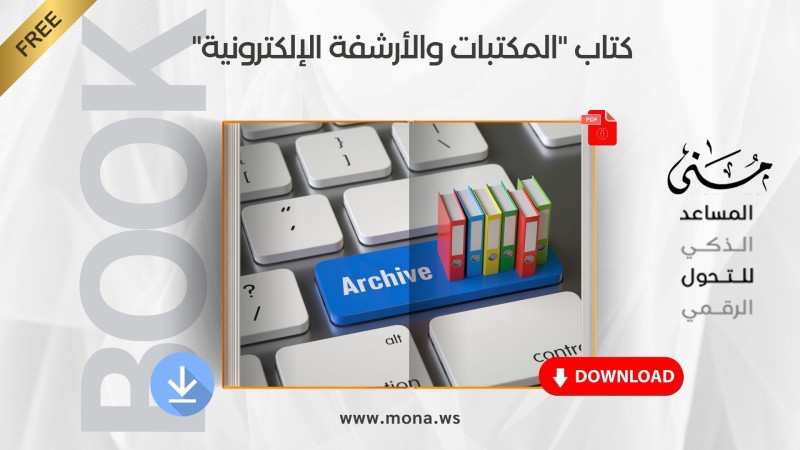 يمكنك تحميل كتاب المكتبات والأرشفة الإلكترونية مباشرةً من هنا.
يمكنك تحميل كتاب المكتبات والأرشفة الإلكترونية مباشرةً من هنا.
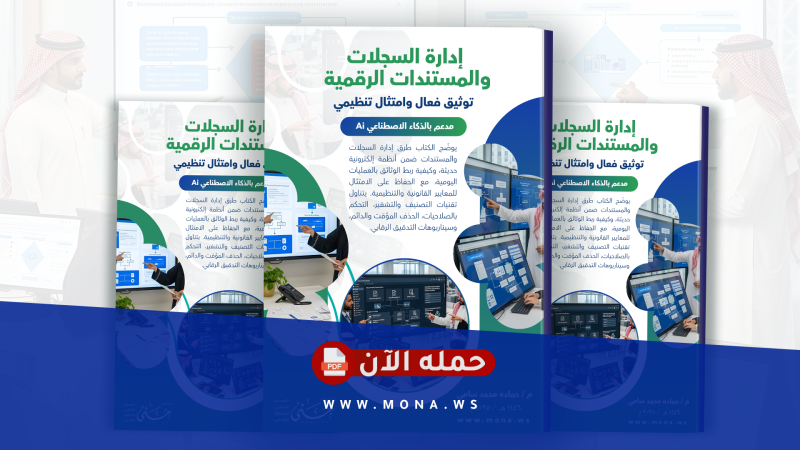
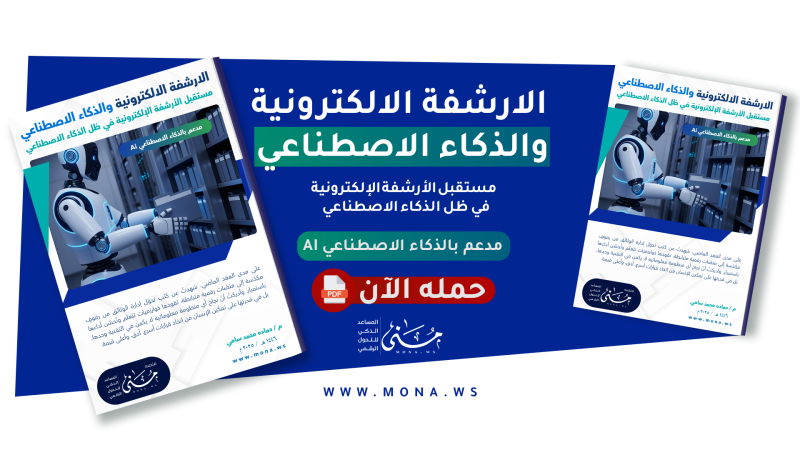
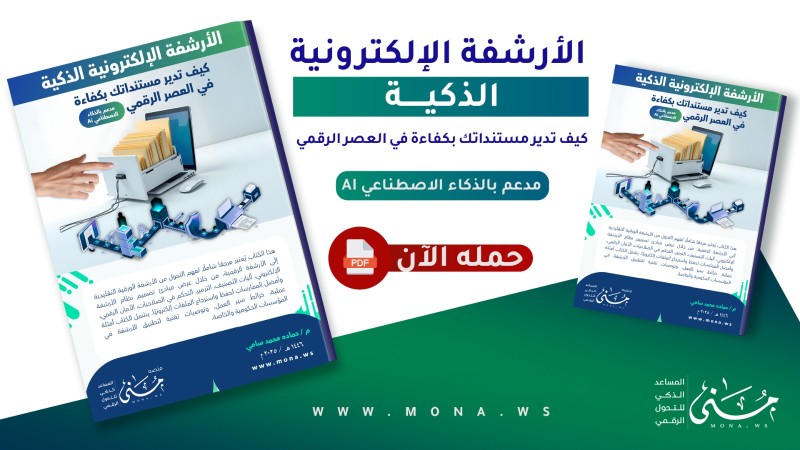
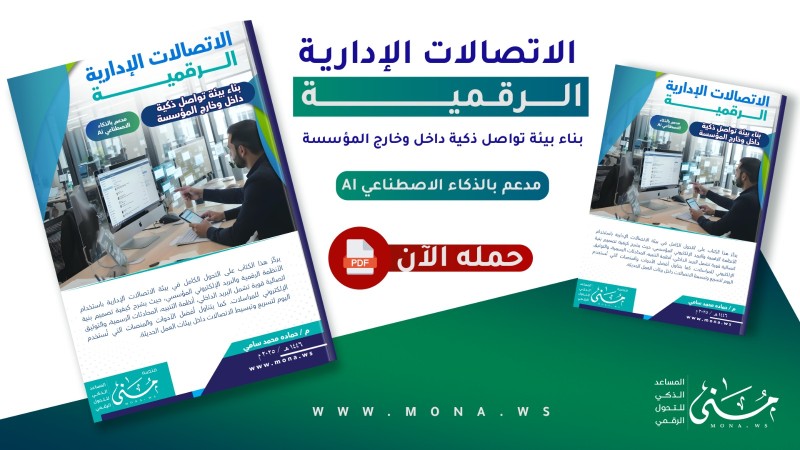
Comments
Add New Comment